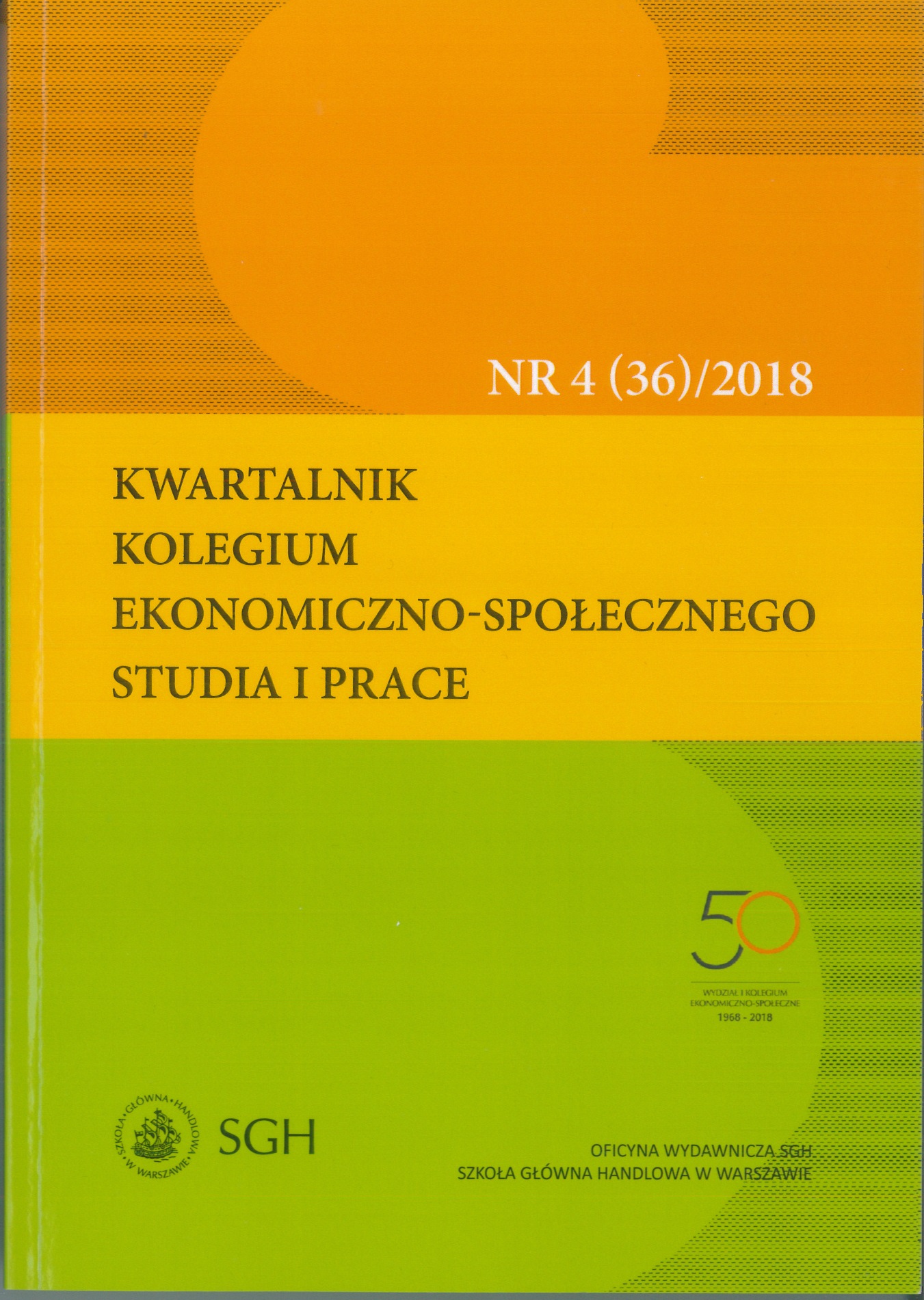Malta’s economic policy evolution from gaining independence in 1964 to its accession to the EU in 2004
Main Article Content
Abstract
Until the 1960s, when Malta remained a British colony, its economy was characterised by a low degree of industrialisation and low exports and was subordinated to the interests of the metropolis. The main source of income for the country was the shipyard and the Royal Navy base. The independence of 1964 created a political and economic space for the industrialisation and development of Malta. In the following years, despite several radical changes in the economic policy pursued by successive governments, the Maltese economy gained high growth dynamics, diversified production, managed to attract foreign investors, gained access to new technologies, developed exports. The model focused on export production and attracting foreign direct investment turned out to be effective and made it possible to implement a costly welfare state policy.
Downloads
Article Details
Autor (Autorzy) artykułu oświadcza, że przesłane opracowanie nie narusza praw autorskich osób trzecich. Wyraża zgodę na poddanie artykułu procedurze recenzji oraz dokonanie zmian redakcyjnych. Przenosi nieodpłatnie na Oficynę Wydawniczą SGH autorskie prawa majątkowe do utworu na polach eksploatacji wymienionych w art. 50 Ustawy z dnia 4 lutego 1994 r. o prawie autorskim i prawach pokrewnych – pod warunkiem, że praca została zaakceptowana do publikacji i opublikowana.
Oficyna Wydawnicza SGH posiada autorskie prawa majątkowe do wszystkich treści czasopisma. Zamieszczenie tekstu artykuły w repozytorium, na stronie domowej autora lub na innej stronie jest dozwolone o ile nie wiąże się z pozyskiwaniem korzyści majątkowych, a tekst wyposażony będzie w informacje źródłowe (w tym również tytuł, rok, numer i adres internetowy czasopisma).
Osoby zainteresowane komercyjnym wykorzystaniem zawartości czasopisma proszone są o kontakt z Redakcją.
References
2. Bowden D., Malta’s Trade with the Arab World, „Middle East Review” No. 7, 1981.
3. Briguglio L., The Economy of a Small Island State Malta, 1960–1993, „Mediterranean World” No. 14, 1995.
4. Brincat M., The Birth of the „Maltese Model” of Development, 1945–1959, „Journal of Maltese History” No. 1, 2009.
5. Caruana Galizia P., The Economy of Modern Malta from the Nineteenth to the Twenty-First Century, Polgrave MacMillan, New York 2017.
6. Dom Mintoff, Malta’s political giant, passes away, „Times of Malta’’ 20.08.2012.
7. Dowdall J., The Political Economy of Malta, „The Round Table, the Commonwealth Journal of International Affairs” Vol. 62, University of Ulster 1972. 8. Fenech D., The 1987 Maltese Election: Between Europe and the Mediterranean, „West European Politics” No. 11/1, 1988.
9. Findlay R., Wellisz S., The Political Economy of Poverty, Equity and Growth: Five Small Open Economies, A World Bank Comparative Study, New York 1993.
10. Grech G., The evolution of the Maltese Economy since Independence, Central Bank of Malta, Valletta 2015.
11. Grech G., Understanding the Maltese Economy, Central Bank of Malta, Valletta 2016.
12. Mizzi E., Malta in the Making. 1962–1987. An Eyewitness Account, Edgar Mizzi, Valletta 1995.
13. Pace R., Microstate Security in the Global System, EU–Malta Relations, Midsea Books, Santa Venera 2001.
14. Pirotta G. A., Malta’s Foreign Policy After Mintoff, „Political Quartely” No. 56, London 1985.
15. Rossi E., Malta on the Brink: From Western Democracy to Libyan Satellite, „European Security Studies”, London 1986.
16. Sammut D., Malta and the Arab World, „Society” No. 3, 1989.
17. Smith S. C., Malta: British Documents on End of Empire, Stationery Office Books, London 2006.
18. Tesch N., The Maltese Economy, [w:] Cyprus, Greece, and Malta, Britannica, London 2013.
